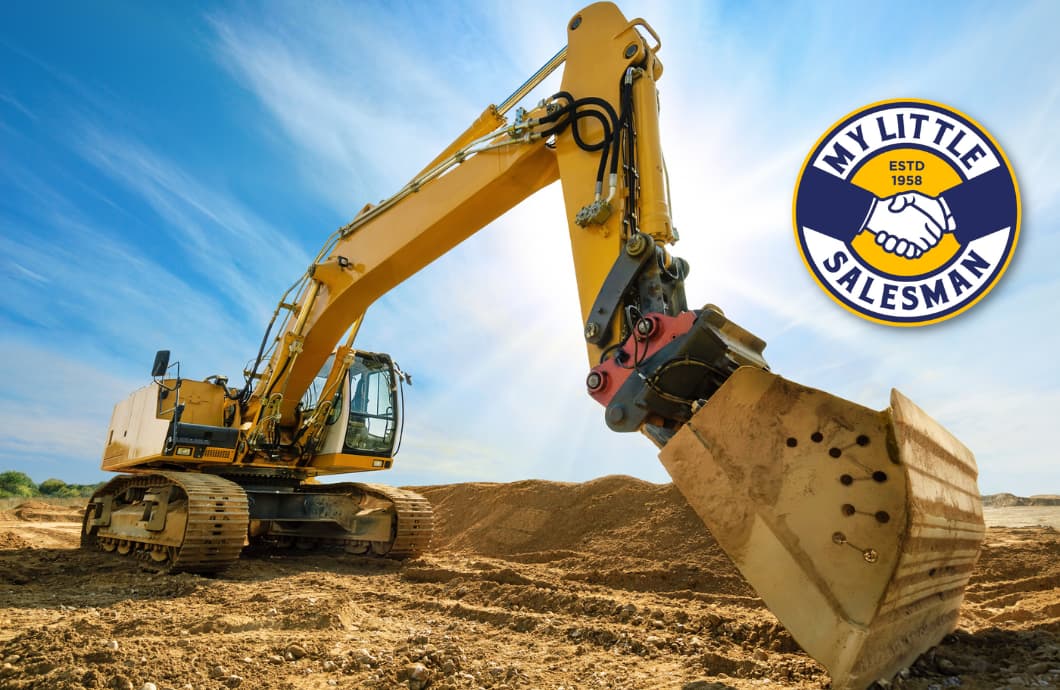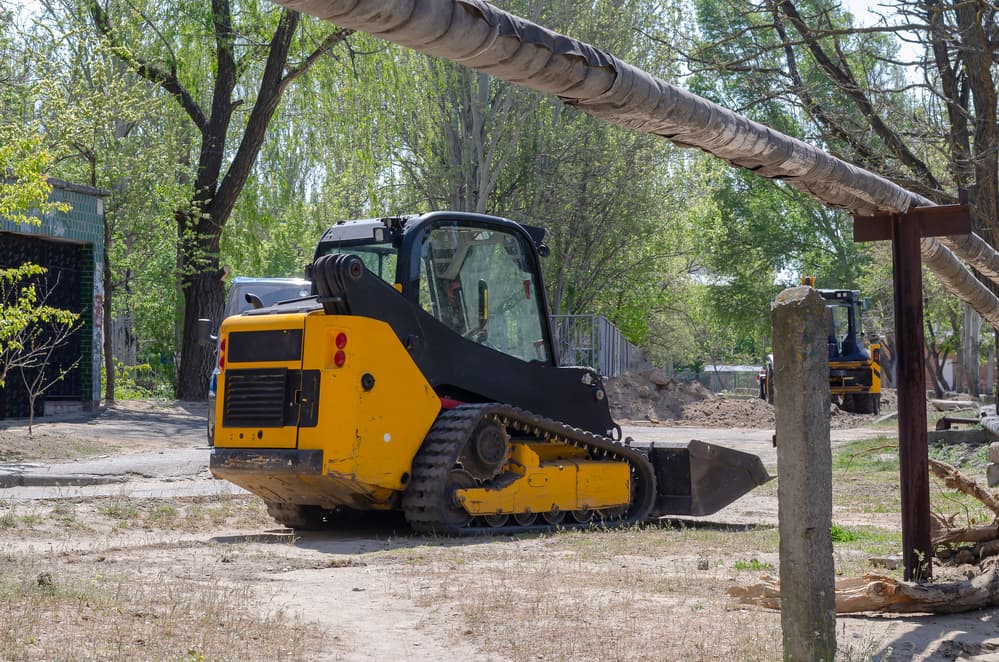
Are extended warranties for construction equipment a smart investment or a waste of money?
In the commercial equipment sales and operations industry, extended warranties spark a common question: are they a savvy investment or an unnecessary expense?
Let's look at the pros and cons of heavy equipment warranties as well as your equipment protection alternatives.
The Changing Landscape of Equipment Management
Traditionally, extended warranties were seen as profit generators for sellers—focusing less on the benefits for manufacturers, dealers, and customers. However, with the evolution of technology and rising expectations around the total cost of ownership, the narrative is shifting.
Much like how you'd feel uncomfortable using a smart phone past it's software's lifespan (frustrating yet true), more folks are feeling the same way about their technologically-advanced heavy equipment.

Extended Protection: An Investment in Equipment Longevity
Manufacturers now view warranties as essential tools for risk management. These warranties are not just about covering repairs. They're also about making sure sold equipment remains productive for customers well into the future—past the stage of software bugs or recalled parts for innovative models.
But what about opting for an extended warranty as a protective measure into the future?
"What should I consider before opting for an extended warranty?"
- Evaluate your company's current maintenance and repair processes. Is it up to snuff to keep you running?
- Assess your company's approach to risk management. What steps are you taking?
- Determine the financial resilience and risk appetite of your organization. Can you afford not to go with a warranty?
- Identify who backs the warranty program. Who is making good when you need them to?
Another part of determining if your company could benefit from extended warranties on your equipment isis by determining the state of the equipment—or its PLCMA.
The Role of a Product Life-Cycle Maturity Assessment (PLCMA) in Determining Warranty
A comprehensive Product Life-Cycle Maturity Assessment can offer insights into these factors—guiding you through the costs and management strategies across the equipment’s lifespan.
What the heck is a PLCMA?
Let's explain what a Product Life-Cycle Maturity Assessment (PLCMA) in is simple terms.
Pretend that, instead of this being a piece of expensive heavy equipment, it's for a toy truck and you're a kid.
- At first, getting this truck is exciting and all of your friends notice it. In industry-speak, this would be the "introduction stage" of the PLCMA.
- Next, some of your friends get similar toy trucks. You play together but they're less likely to be after your truck. This is the "growth stage" of the PLCMA.
- Still later, everyone has a toy truck—in fact, some are newer and nicer than yours, which is now showing some wear. This is the "maturity stage" of the PLCMA.
- And finally, you and your friends may have totally outgrown or lost interest in toy trucks and you've moved on to something else—maybe toy airplanes. Not only do few want to play with your truck anymore but maybe you have forgotten about it. This is the "decline phase" of the PLCMA.
At What PLCMA Stages are warranties a good idea?
Before you decide to buy an extended warranty on a piece of heavy construction equipment, it pays to look at what stage this piece of equipment falls, as we outlined earlier in this piece. This should help you identify if buying a warranty makes sense based on that stage.
For example:
- Buying a warranty for a piece of equipment at the introductory stage may not make sense because the equipment is so new that defects and breakdowns seem unlikely or are already covered by the manufacturer.
- However, as the equipment enters the growth stage and even tip-toeing into the maturity stage, warranties become much more valuable as major repairs still remain costly and inconvenient.
- And finally, once a piece of equipment enters the decline phase, a warranty makes much less financial sense—if they're even available. The equipment may need to simply be replaced—something you may have already done even before using an existing piece of equipment to the end of its useful life.
Understanding the Extended Warranty Landscape
There are primarily three ways to manage the risk associated with extended service contracts—and each with its definite pros and cons.
- OEM Backed: Original Equipment Manufacturers (OEMs) are typically best equipped to handle risks associated with their products. They provide efficient cost structures and valuable data insights—making OEM-backed warranties a preferred choice for many. While the warranties tend to be the most reliable once acquired due to their proximity to the equipment source, they may remain expensive when they need to be purchased or trickier to acquire as the equipment ages.
- Third-Party: While third-party warranties act more as advanced insurance, serving as a suitable risk management tool, they might not always offer the best value due to high administrative costs. Also, because they are essentially an insurance company, third-party warranties may deny more claims or have more hidden fees than manufacturer-or-dealership-backed warranties. That being said, well-researched third-party warranty plans in which costs and benefits are weighed can be risk mitigation strategies for certain companies.
- Self-Insured: Aka, no warranty—so to speak. For businesses with the necessary financial strength and risk tolerance, self-insuring may be the most practical route. This approach indicates a dealer's confidence in their ability to withstand the risks of taking on the full price of equipment repairs in a timely manner.
Competitive Advantage: More Than Just Cost Savings
Extended warranties can transform variable costs into fixed ones—offering a return on investment. They provide OEMs with valuable data on equipment reliability, ensure efficient repairs, and potentially increase equipment resale value due to comprehensive service histories. An extended warranty in the construction equipment sector is far from being a mere expense. It can be a great opportunity to enhance asset management and gain a competitive edge. When structured efficiently and priced appropriately, it can be a valuable component of your equipment management strategy.
Going It Alone: The Warranty-Free Route
On the other side of the to-warranty-or-not-to-warranty equipment discussion, some construction companies simply don't need extended warranties on certain equipment models—especially older ones. With a well-established protocol of staying on top of repairs and keeping detailed service records, many companies can keep their equipment working well into the future and ready for resale once the time comes without additional help. That being said, always make sure your insurance coverage is adequate!
Ready to explore the best equipment for your needs?Since 1958, My Little Salesman has been helping connect buyers and sellers of heavy equipment, commercial vehicles, and much more. Using the intuitive search filtering functionality, you can quickly find precisely what you need in seconds.